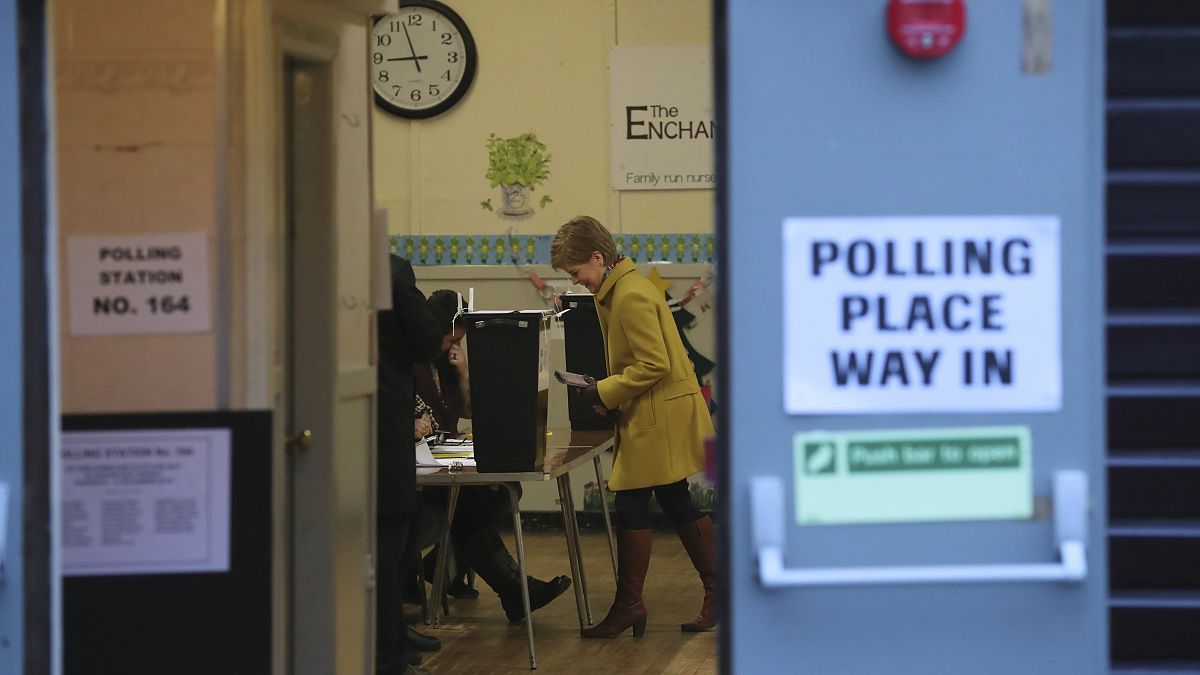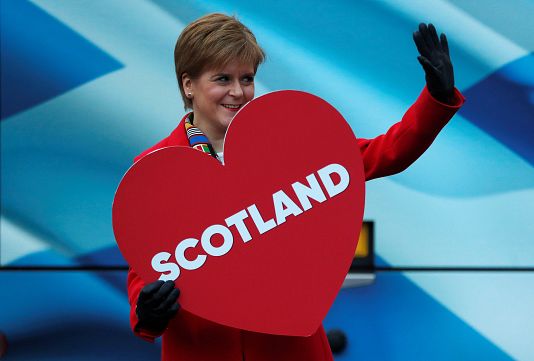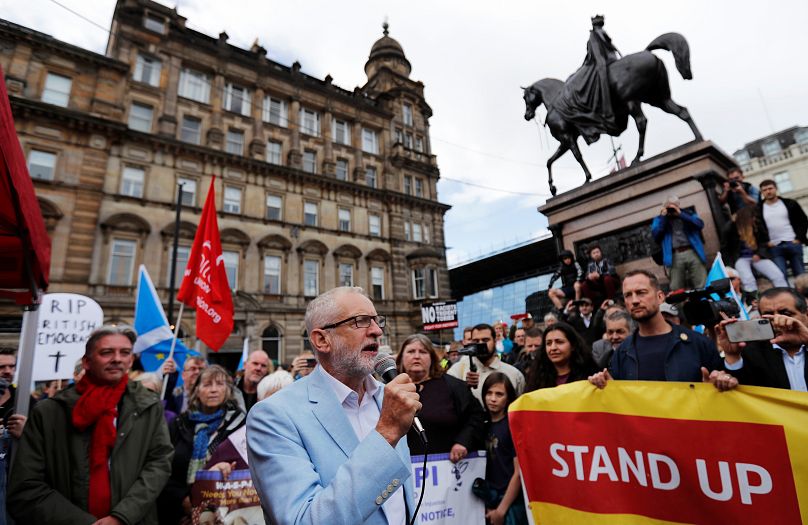It has got dozens of marginal seats where the incumbent MP could easily be ousted. So will Scotland be key to who wins the UK election?
Scotland went to the polls on another bitter winter’s day on December 13 with dozens of key marginal seats up for grabs across the nation.
Liberal Democrat leader Jo Swinson cast her vote in her home constituency of East Dunbartonshire, just outside Glasgow, while Nicola Sturgeon, the leader of the Scottish National Party (SNP) voted in Glasgow City.
Sturgeon is a Member of the Scottish Parliament and, as such, is not running in the general election. But she voted in Edinburgh this morning as her party target Scotland’s 59 parliamentary seats with a promise to deliver a second independence referendum.
Scotland is home to dozens of key marginal seats, including in Glasgow North East, where Labour’s Paul Sweeney has a majority of just 242 and Glasgow South West, where the SNP’s Chris Stevens has a majority of just 50.
Labour leader Jeremy Corbyn visited the constituency on Wednesday to stump for former postman and Labour candidate Matt Kerr, who told Euronews that he was confident Labour could win back seats in Scotland since its “return to socialism” under Corbyn’s leadership.
Indeed, Corbyn’s message - more money for the NHS, worker representation on boards and a £10 minimum wage - has appeal to working-class voters in Scotland, who largely abandoned the party during the New Labour era and instead voted for the more populist SNP.
And it isn’t just in Glasgow: In the parliamentary seat of North East Fife, the SNP’s Stephen Gethins has a majority of just two votes and research suggests that no fewer than 46 MPs are vulnerable on Thursday night.
The latest polling from YouGov on the UK as a whole has the Conservatives on 43% with 339 seats, Labour on 34% with 231, 15 for the Liberal Democrats and 41 for the SNP.
But while social media was awash with pictures of people - and their dogs - at polling stations and reports of long lines, many voters have been frustrated by this election, the third in five years. Scottish voters have also had to deal with referendums in both 2014 and 2016.
Speaking to Euronews, reluctant Labour voter Natalie Miller told Euronews: “I don’t like any of the parties, I don’t like any of the leaders, [...] I can’t believe this is what it’s come to.”
Another, Nicola Walker, the general manager of the Driftwood Bar in Glasgow, said that she was going to vote for the SNP despite not believing in their key manifesto pledge, an independent Scotland.
Meanwhile, David Miller - a former Labour voter - was considering voting Conservative simply because he didn’t like Corbyn and was a unionist, so couldn’t countenance voting for the SNP.
Euronews will be reporting live on election night from East Dunbartonshire, where Jo Swinson is fighting to defend her seat - and her 5,000 majority - from an extremely active campaign from the SNP’s Amy Callaghan.
Swinson, an East Dunbartonshire native, won the seat in 2005 but lost it in 2015 when the SNP swept Scotland and won 56 of its 59 seats at Westminster. She won the seat back in 2017 and was elected leader of the Liberal Democrats in July 2019.
Although initially performing well, the Liberal Democrats have slumped in the polls in recent weeks amidst a backlash against its policy to revoke Article 50 and effectively cancel Brexit, which many voters on either side of the Brexit divide consider undemocratic.
A Liberal Democrat candidate in Glasgow South, Carole Ford, echoed other party figures on Tuesday when she told Euronews that the policy was a mistake.


